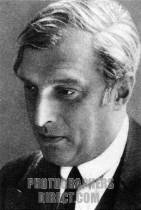
Clemens Heinrich Krauss (March 31, 1893 – May 16, 1954) was an Austrian conductor and opera impresario, particularly associated with the music of Richard Strauss. Krauss was born in Vienna, the out-of-wedlock child of Clementine Krauss, then a 15-year-old dancer in the Vienna Imperial Opera Ballet, later a leading actress and operetta singer, who was a niece of the prominent nineteenth-century operatic soprano, Gabrielle Krauss (1842-1904). His natural father, the chevalier Hector Baltazzi (1851-1916), belonged to a family of wealthy Phanariot bankers resident in Vienna. Baltazzi's older sister Helene was married to baron Albin Vetsera and was the mother of Marie Vetsera, who was thus Clemens Krauss' first cousin. As a boy, Krauss was a chorister in the Hofkapelle (Imperial Choir). He attended the Vienna Conservatory, graduating in 1912. He studied composition with Hermann Graedener and theory with Richard Heuberger. After graduation he was chorus master in the Brno Theater (1912-1913). There he made his conducting debut in 1913. The famous Romanian soprano Viorica Ursuleac, with whom he often performed, was his second wife. Krauss made the rounds of regional centers, conducting in Riga (1913-1914), Nürnberg (1915), and Szczecin (1916-1921), known then as Stettin. The latter appointment gave him ample opportunity to travel to Berlin to hear Arthur Nikisch conduct the Berlin Philharmonic, a major influence. Krauss's next post was back in Austria, where he became director of the opera and symphony concerts in Graz. In 1922 he joined the conducting staff of the Vienna State Opera and teacher of the conducting class at the State Academy of Germany. In 1923 he became conductor of the Vienna Tonkünstler Concerts until 1927, and Intendant of the opera in Frankfurt am Main and director of the Museum Concerts in 1924, until 1929. Krauss visited the United States in 1929, conducting in Philadelphia and with the New York Philharmonic. Also in 1929 he became director of the Vienna State Opera. Its orchestra, in its independent concert form as the Vienna Philharmonic, appointed him its music director in 1930. He was a regular conductor at the Salzburg Festival from 1926 to 1934. In 1930 he conducted Alban Berg's Wozzeck. In 1933 and 1934 Krauss gave up his Vienna positions, becoming director of the Berlin State Opera in 1935 after Erich Kleiber resigned in protest over Nazi rule. In 1933 he took over the preparations for the premieres of Strauss' Arabella when the conductor Fritz Busch (another non-Jewish anti-Nazi) left. Krauss' own position on Nazism was unclear although he enjoyed a close relationship with Nazi official Alfred Frauenfeld and it has been claimed that he sought Nazi Party membership in 1933.[3] In 1937 he was appointed Intendant of the Nationaltheater München, following the resignation there of Hans Knappertsbusch. He became a close friend of Richard Strauss, for whom he wrote the libretto to the opera Capriccio which he premiered in Munich in 1942. Also, he conducted the premieres of Strauss's operas Friedenstag and Die Liebe der Danae. After the Munich opera house was bombed, shutting it down, Krauss returned to conduct the Vienna Philharmonic until it closed shortly before the end of the War (1944-1945). After the War, Allied officials investigated his pro-Nazi activities and because of them forbade him from appearing in public until 1947. They also found that he had frequently acted to assist a number of individual Jews escape the Third Reich machine. When his ban was lifted he resumed frequently conducting the Vienna Philharmonic, including its famous New Year's Day concerts. Following Krauss's rehabilitation he conducted at Covent Garden in London from 1951 and the Bayreuth Festival in 1953 . He died during a visit to Mexico City, and is now buried along with his wife, who died in 1985, in Ehrwald, Austria.
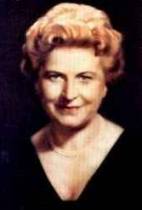
Trude Eipperle (January 27, 1908, Stuttgart - October 18, 1997, Stuttgart) was a German operatic soprano.
She studied at the Musikhochschule in her native Stuttgart, and made her stage debut in Wiesbaden, in 1930. She sang in Nurnburg (1930-34), Brunswick (1934-37), Munich (1938-44), Cologne (1945-51), and Stuttgart from 1951 onwards. She also appeared at the Salzburg Festival in 1942.
She made guest appearances in Vienna, Milan, Barcelona, Lisbon, Brussels, Monte Carlo, Paris and London.
Her repertory included; Countess Almaviva, Pamina, Agathe, Elisabeth, Elsa, Eva, Marschallin, Arabella, but was also admired as Desdemona in Verdi's Otello, Mimi in La boheme, and Cio-Cio-San in Madama Butterfly.
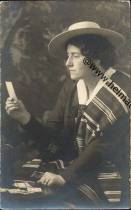
Luise Willer (Seeshaupt, Bavaria, 1888 ; Munich , 27 April 1970) German mezzo-soprano. She studied in Munich, where she sang first in the opera chorus. In 1910 , on the recommendation of Bruno Walter , she appeared as Annius in La clemenza di Tito, and she remained closely associated with the company until her retirement, as Erda in Siegfried, in 1955 . At Munich, she sang in the première of E.W. Korngold's Violanta ( 1916 ) as well as in two Hans Pfitzner premières, Palestrina ( 1917 ) and Das Herz ( 1931 ). In 1930 she sang Clytemnestra in Iphigénie en Aulide at Salzburg, where she reappeared in 1943 as Adelaide in Arabella. She also sang widely throughout Germany, and in 1926 and 1931 was at Covent Garden, considered ‘extremely fine vocally’ as Fricka in Die Walküre, her other roles being Brangäne, Erda and Magdalene in Die Meistersinger. Her repertory also included Dorabella, Carmen, Azucena and Delilah, and recordings show a good voice skilfully used, with characterful treatment of words. 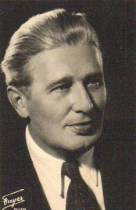
Julius Patzak (9 April 1898 – 26 January 1974) was an Austrian tenor distinguished in operatic and concert work. He was particularly noted in Mozart, Beethoven and in early 20th century German repertoire.
He was born in Vienna and originally studied conducting. He was also taught composition, by Franz Schmidt and Eusebius Mandyczewski. It was in 1926 that he decided instead upon a career as a vocalist, and he made his debut as Radames in Aida at Reichenberg in that year. He sang regularly at the Munich State Opera from 1928 to 1945, and at Vienna from 1946 to 1960. He appeared in London at Covent Garden in 1938 as Tamino in The Magic Flute, and again several times after the war, notably as Florestan in Fidelio. This role, together with that of Palestrina in Hans Pfitzner's opera, was considered to be among his finest roles. In the latter he was pre-eminent among the followers of his Munich predecessor Karl Erb.
Patzak appeared in a number of operatic premières, notably Richard Strauss's Friedenstag, Carl Orff's Der Mond and Gottfried von Einem's Dantons Tod.
Although he did not possess the most powerful of voices, it had a distinctive and attractive timbre and was used with such style, intelligence, charm and musicianship, and with such dramatic conviction, as to warrant a very high place among the operatic singers of his time. He was the very effective partner of Kathleen Ferrier in the recording of Mahler's Das Lied von der Erde under Bruno Walter issued by Decca Records in February 1953. He was awarded the Lilli Lehmann Medal in 1950. Patzak died on 26 January 1974, at Rottach-Egern in Bavaria.
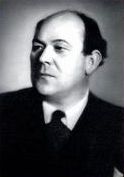
Georg Hann (January 30, 1897 - December 9, 1950) was an Austrian operatic bass-baritone, particularly associated with the comic (singspiel) German repertory.
Born in Vienna, he studied at the Music Academy there with Theodor Lierhammer. He joined the Munich State Opera in 1927, and remained with this theatre until his death. He also appeared regularly at the Vienna State Opera and the Salzburg Festival, quickly establishing himself as a leading buffo interpreter, notably in roles such as Leporello, Falstaff, Kecal, Ochs, La Roche (role he created in 1942), etc.
He made guest appearances at the Berlin State Opera, La Monnaie in Brussels, the Paris Opéra, the Royal Opera House in London, La Scala in Milan.
He did not limit himself to comic roles but also sang Sarastro, Pizzaro, Gunther, Amfortas, Daland and tackled a few Italian roles as well notably Wurm, Alfio, Tonio, as well as Mefistophele in Gounod's Faust.
Hann died in Munich aged only 53. Ludwig van Beethoven Missa solemnis in D major, Op. 123 Georg Hann, bass
Julius Patzak, tenor Luise Willer, mezzo-soprano
Trude Eipperle, soprano Konzertvereinigung Wiener Staatsopernchor
Wiener Philharmoniker
CLEMENS KRAUSS
Rec.: 5.11.1940 (live)
|

